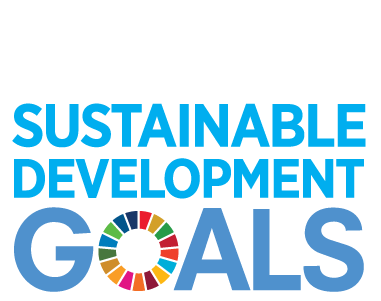Goal 14: Conserve and sustainably use the oceans, seas and marine resources
The United Nations 2030 Agenda for Sustainable Development and its 17 Sustainable Development Goals (SDGs) were adopted in 2015. The Agenda calls for action by all countries to improve the lives of people everywhere. Together with the United Nations, governments, businesses and civil society are mobilizing efforts to achieve the Sustainable Development Agenda by 2030.
WMU is committed to the UN 2030 Agenda and recognizes that all of the SDGs are interrelated and indivisible. Regarding Goal 14 in particular, WMU will continue to support international law as reflected in the United Nations Convention on the Law of the Sea that provides the legal framework for the conservation and sustainable use of oceans and their resources. Further, the University has integrated ocean-related matters across all of its programmes with education focused on the reduction of marine pollution, sustainable management and protection of marine and coastal ecosystems, minimizing ocean acidification, regulating harvesting and ending overfishing, conserving coastal and marine areas, increasing scientific knowledge through research capacity and transfer marine technology.
Since its founding, WMU has contributed to sustainable use of the ocean by focusing on the implementation and enforcement of IMO instruments to reduce accidents and ship-source pollution. Building on this strong foundation, ocean-related matters have been incorporated across all degree programmes and in 2016 a new specialization in Ocean Sustainability, Governance & Management (OSGM) received its first intake of students. Further, in June of 2017 at the UN Ocean Conference, WMU registered a commitment that aims to contribute to the implementation of Goal 14 by training a new generation of maritime leaders through the delivery of specialist post-graduate educational programmes in Ocean Sustainability, Governance and Management, as well as in Maritime Energy Management, amongst others. In July of 2017, WMU and The Nippon Foundation announced their commitment to operationalize the WMU-Sasakawa Global Ocean Institute that is a concrete response to Goal 14. Within Goal 14, the University’s focus is on the following Targets in particular:
14.2 By 2020, sustainably manage and protect marine and coastal ecosystems to avoid significant adverse impacts, including by strengthening their resilience, and take action for their restoration in order to achieve healthy and productive oceans
14.3 Minimize and address the impacts of ocean acidification, including through enhanced scientific cooperation at all levels
14.4 By 2020, effectively regulate harvesting and end overfishing, illegal, unreported and unregulated fishing and destructive fishing practices and implement science-based management plans, in order to restore fish stocks in the shortest time feasible, at least to levels that can produce maximum sustainable yield as determined by their biological characteristics
14.5 By 2020, conserve at least 10 per cent of coastal and marine areas, consistent with national and international law and based on the best available scientific information
14.a Increase scientific knowledge, develop research capacity and transfer marine technology, taking into account the Intergovernmental Oceanographic Commission Criteria and Guidelines on the Transfer of Marine Technology, in order to improve ocean health and to enhance the contribution of marine biodiversity to the development of developing countries, in particular small island developing States and least developed countries
14.c Enhance the conservation and sustainable use of oceans and their resources by implementing international law as reflected in UNCLOS, which provides the legal framework for the conservation and sustainable use of oceans and their resources, as recalled in paragraph 158 of The Future We Want
For more information about Goal 14, click here

